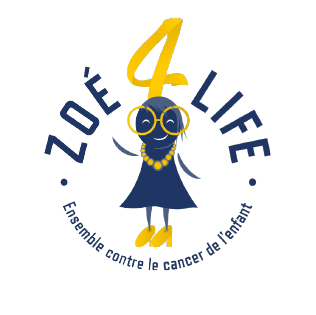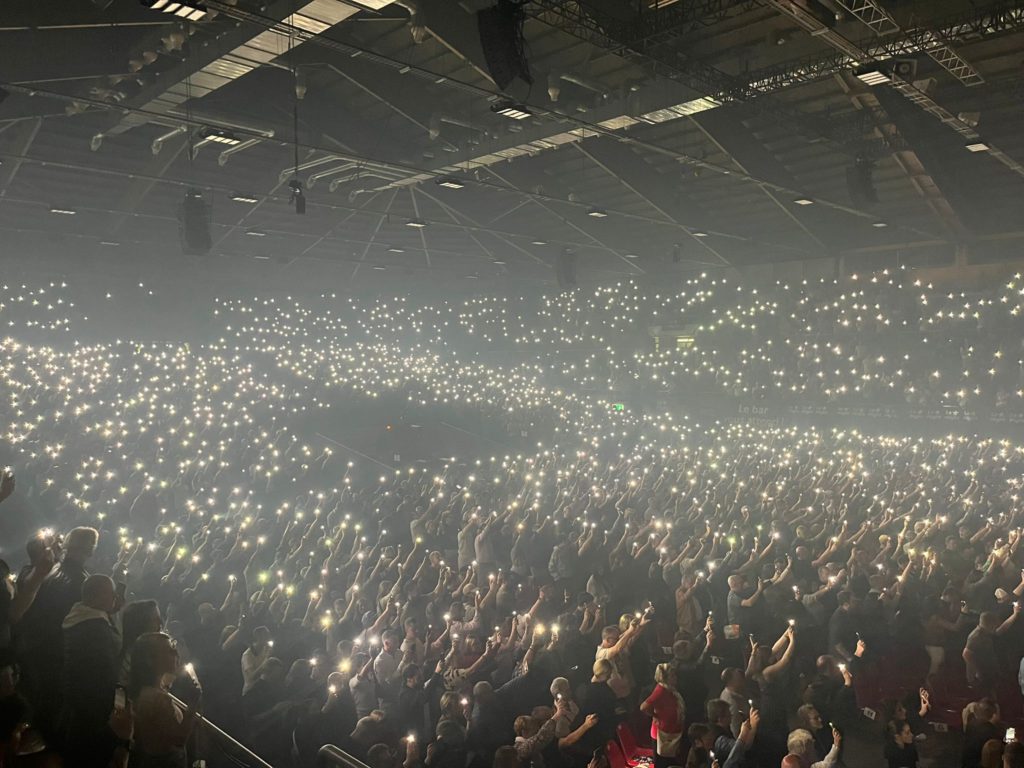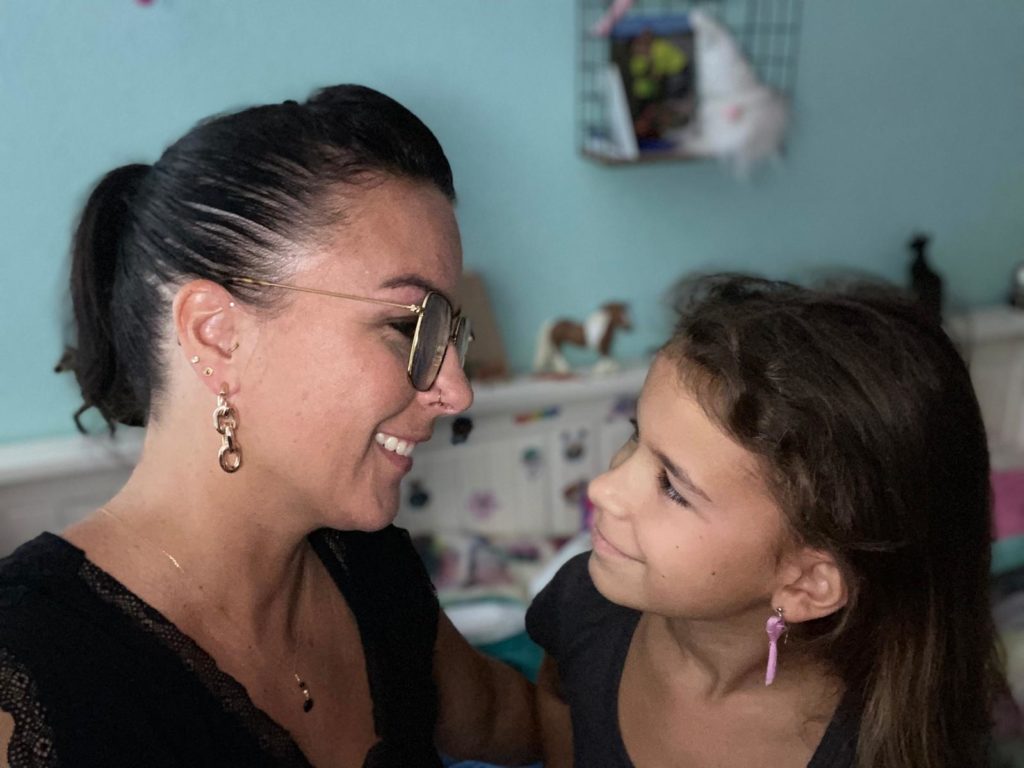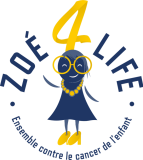Gwenaël's battle
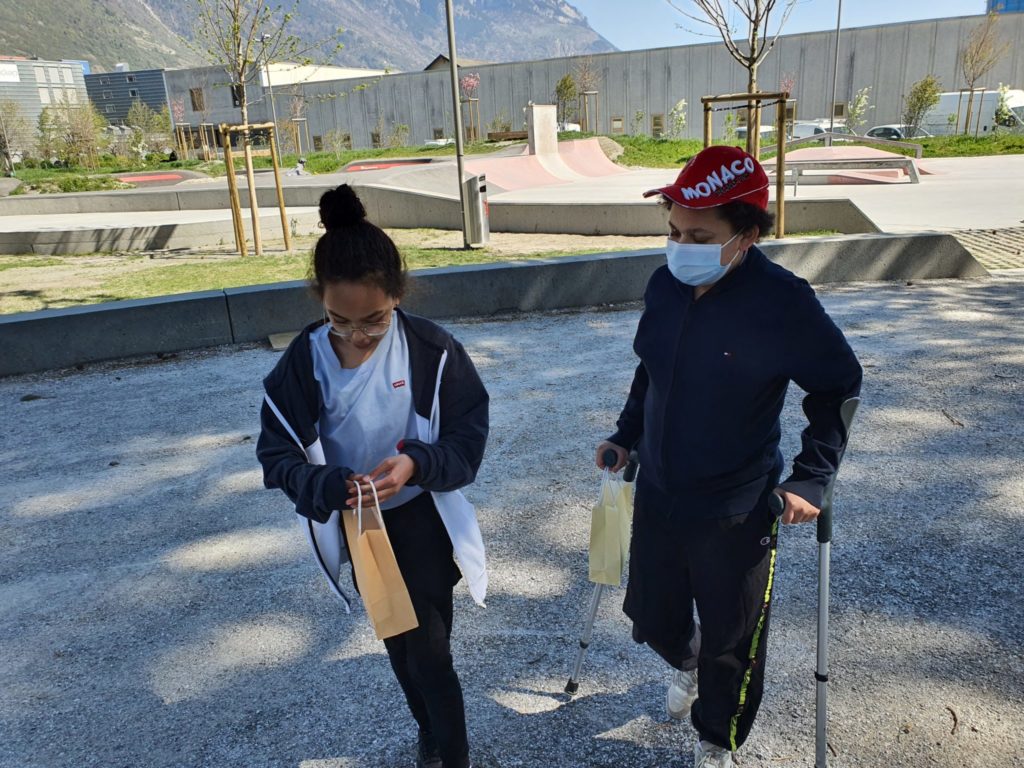
When I arrive in this small village above Nyon, Patrick, Zunaidy and their three children give me a warm welcome. I recognize Gwenaël, the eldest. I know he has had, and still has, a difficult journey against illness. But I'm about to find out that what I think I know about his journey has nothing to do with reality.
After presenting the children with a few gifts, I sit down in the living room with the parents over a cup of coffee.
Patrick spontaneously speaks up and confides in us.
"Gwenaël was 10 years old and had been tired for some time. But the weekend before that famous moment when we tipped over into another world, Gwenaël had again taken part in a handball tournament. Gwenaël has always done a lot of sport. He practiced judo, rugby and handball, and he was gifted. The fatigue persisted, so we went to see our son's pediatrician. He carried out tests because the lymph nodes were swollen. It was only a few days later that he called us and asked us to go to the CHUV immediately. We were placed in a room without understanding what was going on. The doctor who received us quickly told us that Gwenaël had leukemia and had to be placed in isolation immediately. The chemotherapy protocol had to be started urgently. It was then that we discovered the world of pediatric cancer. Gwenaël was hospitalized for 4 months.
The family moved into this small house two months before the disease was announced. It's an old house that needs some work, but more importantly, with the news of leukemia, some of the work can't wait. The immune system of a leukemia patient undergoing treatment is extremely fragile. As the upstairs was already carpeted and upholstered, it had to be completely renovated. Thanks to Gwenaël's grandparents and his sponsor, the work was completed on schedule. The slightest bacteria can be very dangerous for Gwenaël. Everything has to be ready for him to be able to return home without risk.
The parents explained to me that after 6 months of treatment at the CHUV, the doctors realized that the disease was not responding. An allogeneic stem cell transplant from a donor with bone marrow as identical as possible to Gwenaël's was therefore planned. This means using stem cells from another person (donor). The donor's stem cells form a new immune system that will identify and destroy cancer cells. The transplant will take place in Geneva at the HUG.
"This is where we fall into the maze of hospital administration. With coordination problems between hospitals, which seem to have great difficulty communicating. We had to organize a pre-transplant appointment with the medical teams at the HUG, but we had to call back 3 times to get it done. Although we are very well looked after and the care given to our son is excellent, we have to deal with all these little things on the side that take up so much of our energy."
Transplant and post-transplant
Gwenaël was transferred to the HUG for the transplant. As Gwenaël's sister was not a match, he was put on the waiting list, but the situation was urgent. Faced with the impossibility of finding a donor, the medical team decided to carry out the transplant using a relative's stem cells. This procedure is much riskier. It involves more complications, and the risk of rejection is greater than with identical cells. The mother is pregnant and it will be the father who will donate his marrow to their son.
The transplant took place in August and Gwenaël will remain hospitalized until November. During this time, his sister will not be able to visit him. "She took it upon herself but it was hard because she wanted to stay involved."
Graft-versus-host disease (GVHD) can occur after a stem cell transplant. The new immune system can attack healthy cells and damage tissues and organs.
Gwenaël will have a few GVHs in the months following the transplant, but they are under control.
"One year after the transplant, we wanted to go on vacation. Unfortunately, another GVH occurred, and this one was significant. It damaged Gwenaël's liver. To treat the problem, he was given high-dose corticosteroids. As a result, he developed advanced osteoporosis of the femoral neck. Gwenaël spent around 3 months in a wheelchair, until irrigations stabilized the osteoporosis. Gwenaël can now get around with a crutch, but will need surgery later. But that's not all. Every time he receives corticosteroids, there's a diabetic problem within two to three weeks. We have to control the diabetes with a small sensor that regularly monitors insulin levels."
Complications followed, as did operations and hospitalizations. An infection in his Port-à-Cath (catheter with a chamber implanted under the skin) meant another month in hospital for Gwenaël.
"It's vicious, because the higher the GVH rate, the lower the risk of rejection, but there are a lot of complications."
Zunaidy wanted to keep her job. But it was far too difficult to leave her child at the hospital. Her employer agreed to let her go. Especially as Karen, Gwenaël's little sister, wanted to be as involved as possible. The arrival of the baby doesn't make things any easier. Patrick sometimes finds it difficult to get to work while his son is in hospital. Especially when there are complications requiring emergency hospitalization. "Emotionally, it's terrible to drop your son off at the emergency room and go back to work.
"People want to help, but in the long run they don't stay. What's more, helping is to relieve, not to add to our emotional or physical burden. People tell us to get out, go for a walk, but that's not what we need. I know that if people haven't experienced it themselves they can't understand, or even imagine what we're going through."
The medical teams had talked about one year post-transplant, one year and it would be the end of the tunnel. But for Gwenaël and his family, it will be 4 years at best.
Today, Gwenaël and his parents have to cope with daily oral chemotherapy, four courses of medication a day, some of which are taken several times a day without meals. At the age of 14, his blood pressure has to be checked and his insulin levels monitored. He has another catheter, a Broviac, which must not get wet. What's more, Gwenaël can't bend his leg properly, so we have to help him dress and groom himself. All this takes a lot of time, and has to be done every day, morning and evening.
Twice a week, every two weeks, a nurse comes to the house to set up hydration. This is necessary to protect Gwenaël's kidneys following the Photophoresis treatments he is having in an attempt to cure GVH. The nurse came up to six times a week, every week.
This has been our daily routine for the past year, if all goes well. If there are no complications. Gwenaël is in a stable phase, but with ratios that are far too high. There aren't many changes, it's not worse but there aren't really any improvements. The risks of graft rejection are there, and with graft rejection, the return of the disease.
Gwenaël's dad tells me:
"We keep getting hit in the face over and over again. It takes a long, long time, but above all, what's the impact? The more drugs he takes, like Prednisone, the greater the side effects. Maybe his liver won't function properly, and what about his leg and osteoporosis?"
"Thanks to the pandemic, we were able to go out and do activities again. The fact that everyone was wearing masks, and the hygiene and distancing measures, protected fragile people like Gwenaël. People don't realize how much this has helped us on a daily basis. Going to restaurants and hairdressers was no longer possible before the pandemic with a child as fragile as Gwenaël."
In the middle, we have to think about Gwenaël's teaching.
"Gwenaël has been out of school for 3 years. He is home-schooled as much as possible and works hard, but it's not enough. Of course, he had to repeat a year because the first year of treatment was so intense. But by dint of hard work, he passed the exams to move up to 9p. He was so proud, and we were even prouder when he received the letter informing him of the name of his new 9p teacher.th. Unfortunately, a few weeks later we received a letter informing us that the school did not have the infrastructure to look after our son and that he would have to repeat his 8th. It was a big disappointment for everyone, especially for Gwenaël, who had been looking forward to this new class.
I sense that it's extremely difficult for the father to accept seeing his son, who was such an active sportsman, so diminished by treatment. But above all, I feel his anger at the inconsistencies of the system. Also the weariness of having to fight for such trivial things when you see your child fighting against illness.
"When Gwenaël fell ill, I contacted the school canteen to inform them that he would not be returning before the end of the school year. The school told me that there was a two-month notice period. So I had to ask the social worker at the CHUV, who helps us, to write a letter to explain the situation. In the end, they agreed not to charge us anything for Gwenaël from the moment he stopped going to the canteen. But the sibling package we had for our two children was cancelled. As a result, the price for our daughter Karen has doubled. Despite discussions, they wouldn't listen. We found another solution for our daughter. We were still charged for the two months' notice.
An ongoing battle
When Jennifer, our youngest daughter, was born, the family asked if they could have a single room for mom. Not the private benefits, just a single room so that Gwenaël could come and find his mom and little sister in complete safety. The hospital was very accommodating, but the insurance company would have none of it. The family paid the single room supplement.
When Gwenaël needed a wheelchair, the insurance company wouldn't pay the full rental charge. Only the sum of CHF 1.50 per day, even though it costs much more.
"We have to fight to get insurance to reimburse the syringes you need to administer medicines at home. Some types are reimbursed, but not the ones we need. The same goes for drugs, and the LIMA (list of auxiliary means) covers a maximum amount per year. But in February we already reached the ceiling. Home care is always better than hospital care, but if the insurance companies don't cover the costs, that's not good enough.
"When it came to leukemia treatments, there were no worries. Now that we're dealing with drugs to treat the causes of cancer treatments, it's a real obstacle course. You have to fight for every little thing. In the end, we have to pay for all these expenses, no matter how small, and when you add them up over months or even years, you can imagine the budget for a family."
"People don't realize what it's like to have a sick child, what it entails emotionally, physically and financially. People complained about confinement during the pandemic, but our children are isolated for months at a time, and their only 'social' contact is with the hospital. Everyone should realize the courage of these children and their strength to live. I admire Gwenaël's courage and willpower.
On the way home, I'm thinking. I'm disappointed that the healthcare system in our country has so many gaps and problems, even though I know that other organizations in Switzerland are working on it. But above all, I'm angry. I'm angry because, once again, a child has had to undergo such heavy treatment to be cured of cancer, and now has to cope with so many after-effects.
Getting better is nowhere near sufficient.
My brain is in turmoil. I rant and rave because I want to do more for these children. I want research to advance so that we can cure them with less burdensome, less toxic treatments. I want our politicians, our researchers and the world to make children their absolute priority. Issues on which we are working hard with Zoé4life.
Suddenly, emotions overwhelm me, and there, alone in my car, I can now scream and cry in the face of so much injustice. But I know that tomorrow I'll be ready to continue the work we're doing at Zoé4life to cure more children and cure them better.
Testimony received and written by Natalie Guignard-Nardin in 2022
